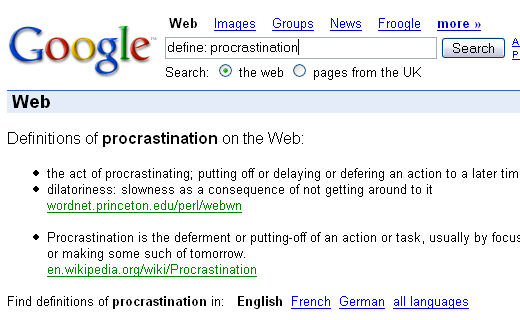I just wanted to share with you a list of websites today, looks really promising: The Life Hack Community at Listible.
It gets more and more attention, so I expect the ratings to promote really the best sites to the top of the list. It’s useful and interesting right now, and I’m sure it will be even more useful in the future.

